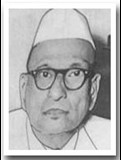Generalities
Coldness, cramps and convulsions, with mental anguish are the marked features of Camphor indications. Convulsions with blue lips, froth at mouth and lock-jaw. It is a remedy for sudden collapse, from over-powering influences acting on nervous centres. Patient becomes ICY COLD; YET HE IS AVERSE TO COVERS, or wants them off; and then on alternately with internal burning heat and anxiousness. Sudden; weakness; fainting spells growing worse. Dry collapse, with little vomiting and purging; in cholera. Tetanic spasms with showing of the teeth, with retraction of the lips, followed by stupor, with coldness. Trismus of new born. Chilly at the start of colds. Scanty or retained discharges. Very sensitive to cold air or taking cold. Suppressed eruptions. Awkwardness. Soft parts drawn in. Ill effects, of shock; from injury; operations, sunstroke. Vexation. Corrects spoiled cases and antidotes most of the medicines (specially Vegetable kingdom). DIGESTIVE TRACT; Cerebro-Spinal nerves, urinary organs and nose are prominently affected. Feeling of hot waves, during pain, with restlessness.
Better
Free discharges. Sweat. Thinking of it. Drinking cold water.
Worse
Cold; drafts. When half asleep. Mental exertion. Shock. SUPPRESSIONS. Inattention. Motion. Night.
Mind
Insensibility, vanishing of all senses or anxiety. Awkwardness. Loss of memory. Delirium. Mania; religious, puerperal. Wants to jump out of bed or window. Does not like any one near him. Nothing satisfies him. Excited, talks constantly, scolds, in indecent language. Feeling that she is going to die, relieved, when she finds herself alive. Attacks of anguish at night. State of frenzy, hysterical; scratches; spits, bites, tears her clothes. Screams and calls for help. Closes her eyes and answers no questions.
Head
Feels knotted up. Occiput throbbing, synchronous with the pulse, better standing; when deprived of sexual intercourse. Fleeting stitches in temples and orbits. Head is drawn to one side (in spasms). Pains run from head to tip of fingers.
Eyes
Objects appear too bright; or move to one side with a jerk. Fixed, staring, turned upwards or outwards. Pupils dilated. Eyes protrude, with mania. Eyes deeply sunken.
Ears
Ear-lobes hot and red.
Nose
Cold and pinched. Coryza; in old age. Inhaled air seems cold. Persistent epistaxis, with goose-flesh state of the skin.
Face
Haggard, pale, bluish, old, pinched. Pale and red by turns. Cold sweat. Upper lip retracted. Lockjaw. Distorted. Grimaces. Froth or foam at the mouth.
Mouth
Tongue, bluish. Cold, trembling. Speech; broken, feeble, hoarse. Cold breath. Boiling hot tea seems cold. Toothache better beer.
Stomach
Burning thirst. Burning; in stomach; in abdomen. Asiatic cholera. Little vomiting or purging; with dry collapse. Rice water stools. Vomiting in morning; bilious, sour.
Urinary Organs
Strangury. Haematuria. Retention.
Male
Sexual excitement. Satyriasis. Priapism, during dreams. Impotence.
Female
Sexual desire increased. Hot flushes with coldness of abdomen and limbs, at climaxis. Constantly bares her breasts; mania.
Respiratory organs
Asphyxia neonatorum. Hoarse, squeaking voice. Cold breath. Suspended respiration. Violent attacks of dry cough.
Heart
Pulse; weak, not perceptible, frequent, small. Palpitation after eating.
Extremities
Thumbs drawn backwards. Cramps in calves. Cracking in joints. Cold, numb, tingling. Feet cold, pains as if sprained.
Skin
Dry; livid, blue, cold, cannot bear to be covered. Erysipelas. All sequelae of measles.
Sleep
Insomnia with cold limbs. Very restless. Comatose sleep.
Fever
Shaking chill with cold skin; wants covers during the hot stage only. Sudden inflammatory fevers, with rapid alternation of heat and cold; followed by rapid prostration. Heat or sweat better covers. Chilly; below scapula; before colds. Sweats when covered; body becomes cold, when uncovered.
Related
Carb-v; Cupr; Op; Secale
Complementary
Cantharis

